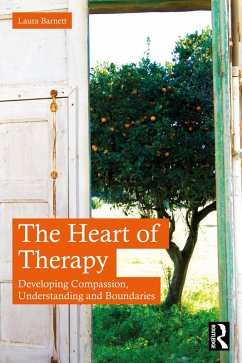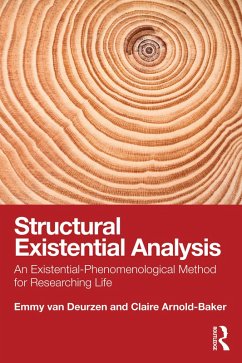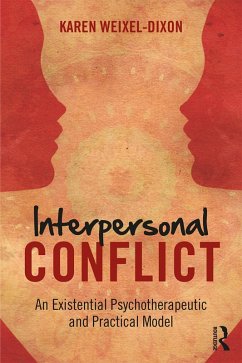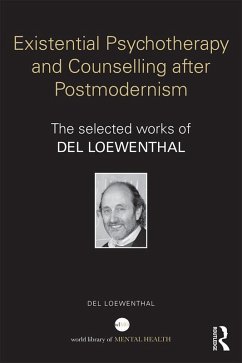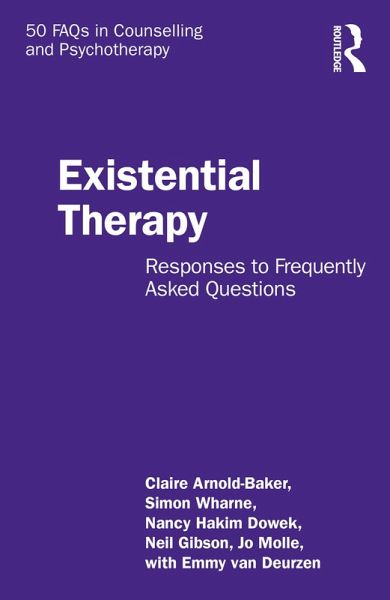
Existential Therapy (eBook, ePUB)
Responses to Frequently Asked Questions

PAYBACK Punkte
9 °P sammeln!
In Existential Therapy: Responses to Frequently Asked Questions, the authors address those questions most frequently asked by potential clients of existential therapy or by people beginning their training or by those interested in counselling or psychotherapy.The book is divided into five parts, with each focusing on responding to questions about different elements of existential theory and its practice and applications: Part 1: Existential philosophy Part 2: Existential method and theory Part 3: Existential skills and practice Part 4: Existential applications in different contexts Part 5: Exi...
In Existential Therapy: Responses to Frequently Asked Questions, the authors address those questions most frequently asked by potential clients of existential therapy or by people beginning their training or by those interested in counselling or psychotherapy.
The book is divided into five parts, with each focusing on responding to questions about different elements of existential theory and its practice and applications:
The Q&A format, presented in accessible language, emphasises commonly unknown or misunderstood areas that are typically overlooked.
The book will appeal to a wide audience of potential clients and trainees, practitioners from other approaches, and those outside of the profession who are curious to understand more about existential therapy.
The book is divided into five parts, with each focusing on responding to questions about different elements of existential theory and its practice and applications:
- Part 1: Existential philosophy
- Part 2: Existential method and theory
- Part 3: Existential skills and practice
- Part 4: Existential applications in different contexts
- Part 5: Existential relevance to everyday life
The Q&A format, presented in accessible language, emphasises commonly unknown or misunderstood areas that are typically overlooked.
The book will appeal to a wide audience of potential clients and trainees, practitioners from other approaches, and those outside of the profession who are curious to understand more about existential therapy.
Dieser Download kann aus rechtlichen Gründen nur mit Rechnungsadresse in A, B, BG, CY, CZ, D, DK, EW, E, FIN, F, GR, HR, H, IRL, I, LT, L, LR, M, NL, PL, P, R, S, SLO, SK ausgeliefert werden.





